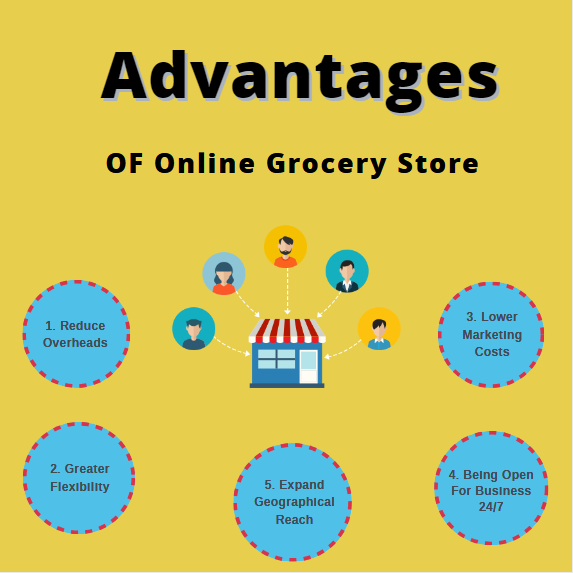The Significance of User Experience in Ecommerce Success
The Significance of User Experience in Ecommerce Success
Blog Article
A Comprehensive Guide to Why This Trend Is Improving Consumer Actions and the Diverse Products That Are Transforming Hands Online
In today's quickly evolving market, the convergence of customization, sustainability, and technical advancement is considerably changing customer behavior. As younger generations significantly focus on moral considerations and custom-made experiences, brand names are adjusting their approaches to meet these expectations. This transformation is not simply a fleeting fad yet a profound shift that is influencing the sorts of items traded in the electronic realm. Recognizing the hidden aspects driving this adjustment is necessary for services aiming to prosper in this brand-new setting, prompting a more detailed examination of the implications for both customers and brand names alike.
Secret Factors Driving Modification
Increasingly, customer habits is being shaped by a confluence of essential aspects that drive significant adjustment in the market. One of the most crucial impacts is the fast improvement of innovation, which has transformed how consumers access information and make purchasing decisions (Ecommerce). The expansion of mobile phones and social media sites systems enables consumers to participate in real-time communications, leading to even more enlightened selections and enhanced assumptions for personalization
Furthermore, group changes, including the surge of millennials and Generation Z, are redefining market dynamics. These generations prioritize experiences over material goods and seek brand names that straighten with their worths, such as openness and authenticity. This shift obliges organizations to adjust their strategies to reverberate with these conscious customers.
Furthermore, the influence of globalization can not be neglected. With the ability to shop throughout borders, customers are revealed to a broader range of items and brand names, fostering an affordable setting where quality and customer care come to be vital. With each other, these aspects produce a complex landscape that compels organizations to be nimble in their strategy, guaranteeing they satisfy the developing demands of a diverse and educated consumer base.
The Surge of Sustainable Products
Exactly how can brands properly react to the growing consumer need for sustainable products? To browse this shift in consumer habits, brands must focus on openness and authenticity in their sustainability initiatives. This entails providing clear info about sourcing, manufacturing procedures, and the overall lifecycle of items. Brand names can take advantage of qualifications, such as Fair Profession or natural labels, to develop trust and trustworthiness with eco-conscious customers.
In addition, innovation in product design and products is crucial. Business are progressively adopting naturally degradable, recycled, or upcycled materials to lower ecological influence. This not just appeals to customers' preferences but likewise settings brand names as leaders in sustainability.
Involving in area campaigns and sustaining ecological reasons can additionally boost brand loyalty. Customers are a lot more inclined to sustain brand names that actively contribute to sustainability initiatives and demonstrate social duty.
Personalization in Purchasing Experiences
Personalization has actually come to be a critical great post to read element in improving purchasing experiences, as customers significantly look for customized communications that resonate with their individual preferences. This change is driven by the growing expectation for brand names to recognize and deal with special customer needs, which has led to ingenious methods in retail.
Ecommerce platforms currently utilize advanced formulas that evaluate surfing history, acquisition behavior, and market info to curate customized item suggestions. These tailored experiences not just enhance customer engagement yet likewise foster brand loyalty, as clients are most likely to go back to systems that offer appropriate tips.
Additionally, personalization prolongs beyond product referrals; it encompasses targeted advertising and click to read marketing methods, tailored email projects, and customized web experiences. Brand names that harness the power of information analytics can create a much more smooth and satisfying purchasing experience. Vibrant pricing designs and personalized discounts can considerably improve customer complete satisfaction, as they mirror an understanding of private buying habits.
Inevitably, the focus on personalization in buying experiences stands for an essential shift in consumer habits. As brands proceed to adapt to these progressing expectations, the ability to provide individualized interactions will be essential for maintaining competitive advantage in the retail landscape.
Effect of Social Network Trends
The rise of customization in shopping experiences has been dramatically influenced by social networks fads, as systems end up being main to consumer engagement and brand communication. Social network enables brand names to collect comprehensive information concerning customer preferences, behaviors, and communications, which informs tailored advertising techniques (Ecommerce). This data-driven method allows businesses to customize their offerings, enhancing client fulfillment and loyalty

Social network also cultivates area among consumers, motivating discussions around items and brands. This sense of belonging impacts acquiring choices, as consumers are more probable to get products recommended Check This Out by their peers or areas. Moreover, user-generated content, such as testimonials and testimonies shared on social platforms, significantly impacts brand perception and trust fund.
The Future of Online Customer Habits
What will the future hold for on-line customer behavior as technology proceeds to progress? Significantly, customers are anticipated to prioritize personalization and convenience in their on-line buying experiences. As expert system and artificial intelligence modern technologies breakthrough, stores will harness data analytics to develop customized buying experiences, expecting consumer needs and preferences extra properly than ever in the past.
In addition, the increase of immersive technologies, such as augmented fact (AR) and digital reality (VR), will certainly redefine item interaction. Consumers will certainly have the ability to envision items in their very own atmospheres before buying, hence minimizing unpredictability and boosting complete satisfaction.
Sustainability will certainly additionally play an important duty in shaping future consumer actions. As awareness of environmental issues expands, consumers are likely to favor brand names that show commitment to lasting techniques, influencing getting decisions and brand name loyalty.
In addition, the integration of voice business and wise home gadgets will simplify the purchasing procedure, making purchases a lot more available. In this developing landscape, organizations should adjust to these shifts, concentrating on development and customer engagement to remain affordable (Ecommerce). The future of online consumer actions promises to be vibrant, driven by technical developments and transforming consumer values

Conclusion
The recurring change in customer habits is significantly affected by the convergence of customization, sustainability, and technological innovations. As brands adjust to meet the needs of millennials and Gen Z, the emphasis on tailored experiences and moral sourcing ends up being significantly noticable. The assimilation of social networks better magnifies these changes, promoting area engagement and shaping purchasing decisions. The advancement of the online market proceeds to reflect these shifting dynamics, proclaiming a brand-new era for consumer communications and item offerings.
Report this page